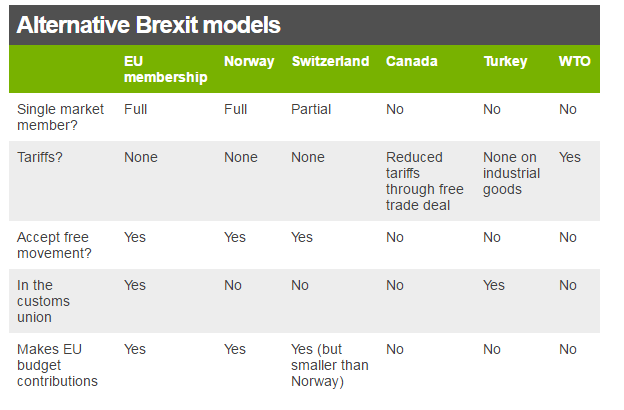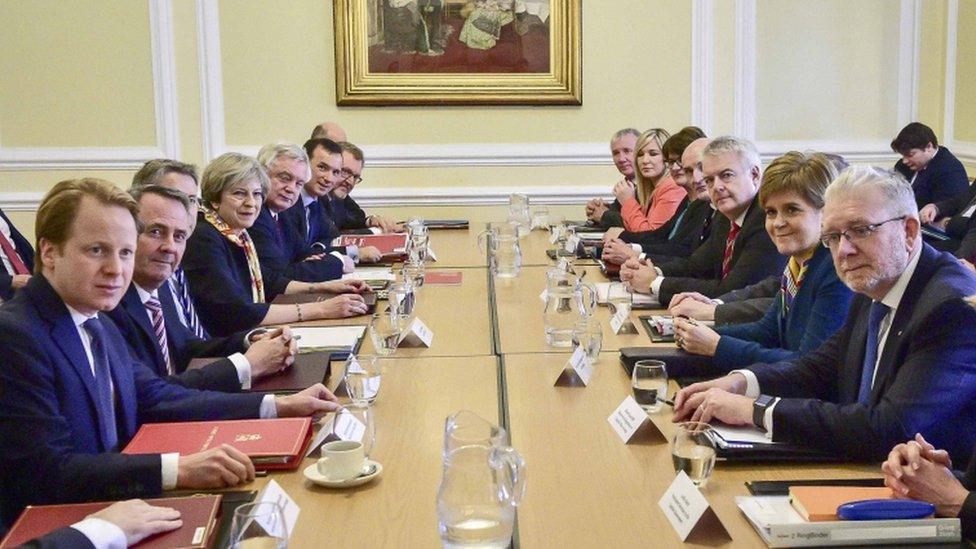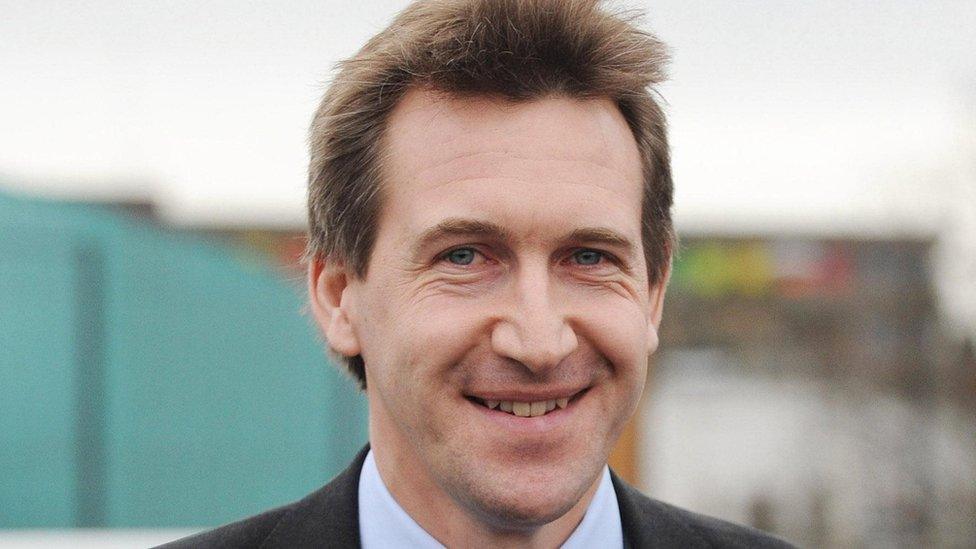Brexit decision 'difficult' for Labour, Keir Starmer says
- Published
- comments
Starmer: Brexit bill difficult for Labour
Labour MPs face a "difficult decision" on whether to authorise the UK's departure from the European Union, the party's Brexit spokesman has said.
Sir Keir Starmer said "as democrats" Labour should not block the start of the process but called for an end to "gloating" from Leave campaigners.
He was speaking as MPs began a two-day debate on legislation to authorise the triggering of formal negotiations.
The government wants to start the two years of talks by the end of March.
The European Union (Notification of Withdrawal) Bill, external would allow Prime Minister Theresa May to invoke Article 50 of the Lisbon Treaty, getting official talks between the UK and the EU started.
The Liberal Democrats and Scottish National Party are to vote against it, but Labour's leadership is backing it, meaning the government is expected to win.
Brexit Secretary David Davis said the draft legislation was about "implementing a decision already made" by voters in the EU referendum.
He added that people would view any attempt to halt the bill's progress "dimly".
With 99 MPs wanting to speak, the Commons' hours were extended to midnight on Tuesday to accommodate more speakers, with a vote to take place on Wednesday evening after further debate.
David Davis: Listen to the people on Brexit
Labour leader Jeremy Corbyn has ordered his MPs to vote with the government, but some are expected to defy him.
Sir Keir said two thirds of Labour MPs represented constituencies that voted to leave the EU, and one third where people voted to stay in.
"This is obviously a difficult decision," he said.
"I wish the result had gone the other way. I campaigned passionately for that. But as democrats our party has to accept that result and it follows that the prime minister should not be blocked from starting the Article 50 negotiations."
During the first part of the second reading debate, MPs on both sides of the EU debate set out their cases.
Former Conservative Chancellor Ken Clarke confirmed he would vote against the bill, saying it was in the national interest for the UK to stay in the EU.
Another Conservative Remain campaigner, Anna Soubry, said she did not want to block Article 50 but predicted "history will not be kind to this Parliament".
Former Liberal Democrat leader Nick Clegg attacked the government over its negotiation strategy, saying it had "decided to placate parts of the Conservative Party rather than serve the long-term strategic interests of this country".
Clarke: Brexit hopes 'like Alice in Wonderland'
Labour MP regrets 'venomous' response to Brexit vote
But former Conservative minister John Redwood - who said he would have quit as an MP if Remain had won - predicted Parliament would be "made great by the people" after Brexit.
And fellow leading Conservative Leave campaigner Michael Gove predicted a "liberal, open, democratic" Brexit.
The size of the Labour rebellion will be closely scrutinised, with several of his MPs indicating they plan to defy Mr Corbyn.
Two shadow ministers have quit, saying they want to vote against it.
And Labour MPs Stephen Timms and Lyn Brown told the Commons they would also vote against the bill.
Although Labour's leadership ultimately backs the bill, the party will also attempt to amend the legislation, hoping to force the government into offering MPs a "meaningful vote" on the eventual Brexit deal reached after the negotiations.

If the vote goes the government's way, the bill will return to the Commons next week for the committee stage when opposition parties will try to push through a series of amendments.
The bill was published last week, after the Supreme Court decided Parliament must have a say.
- Published30 January 2017

- Published30 January 2017
